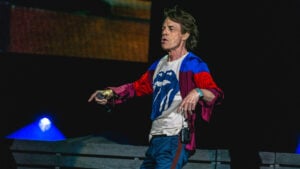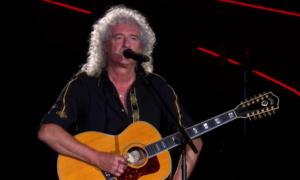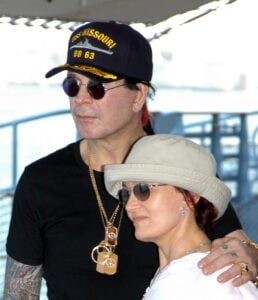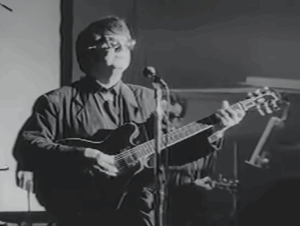5 Most Political Songs From Bruce Springsteen’s Career
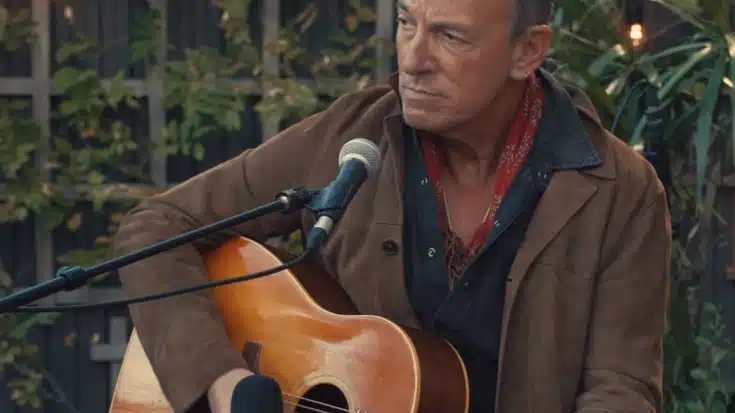
via @bleachers / YouTube
Protest has always found a home in music, and few artists have wielded their platform with as much steady conviction as Bruce Springsteen. Rather than chasing trends or slogans, Springsteen’s political songs are rooted in the everyday lives of real people—factory workers, veterans, immigrants, and the forgotten corners of American life. His lyrics don’t scream; they resonate.
What sets Springsteen apart is his storytelling. He doesn’t simply highlight injustice; he tells the stories behind it—quiet portraits of individuals caught in systems beyond their control. These songs offer no easy answers, only raw truths and enduring questions. They aren’t just political statements; they’re deeply human narratives that trace the ripple effects of policy, power, and inequality.
Across five decades, Springsteen has channeled his observations into anthems that challenge, mourn, and call for reckoning. From the post-Vietnam malaise of the ’70s to the economic anxieties of the 2010s, each era has found its reflection in his music. Below are five songs—one from each decade—that stand as powerful examples of Springsteen’s enduring role as both musician and social commentator.
View this post on Instagram
1. “Lost in the Flood” (1973)
Featured on Springsteen’s debut album Greetings from Asbury Park, N.J., “Lost in the Flood” stands as an early example of his ability to merge vivid storytelling with sharp social commentary. The song presents a chaotic and fragmented vision of post-Vietnam America, seen through the eyes of a shell-shocked veteran trying to navigate a broken society. Its haunting tone and jagged narrative structure mirror the disorientation felt by many during that era.
The lyrics dive into the dark undercurrents of urban decay, violence, and systemic failure. Springsteen doesn’t glamorize the aftermath of war; instead, he offers a stark, almost surreal landscape where the lines between heroism and tragedy blur. The characters are lost, the streets are hostile, and the American Dream feels distant, if not altogether out of reach.
“Lost in the Flood” may not be as well-known as some of Springsteen’s later anthems, but its political bite is undeniable. It captures a generation’s disillusionment and sets the tone for the artist’s lifelong exploration of America’s fault lines. Even in his early twenties, Springsteen was already channeling the anxieties of a country unraveling.
2. “Roulette” (1988)
Written in the wake of the Three Mile Island nuclear accident in 1979 but not released until nearly a decade later, “Roulette” is a blistering, high-octane track that channels panic and betrayal. It tells the story of a man forced to flee his home during a nuclear emergency, not knowing if he’ll ever return. The urgency in the song’s tempo reflects the chaotic nature of a disaster spiraling beyond control.
Springsteen turns the spotlight on institutional failure and the blind trust people are often forced to place in those with power. As alarms sound and evacuations begin, the narrator feels like a pawn in a deadly game—hence the song’s title. The metaphor of “roulette” underscores the randomness and risk inherent in policies driven by profit and politics rather than public safety.
Though it didn’t make it onto a studio album initially, “Roulette” has grown in stature over time. It’s a stark reminder of how easily lives can be upended by decisions made behind closed doors. In a few taut minutes, Springsteen captures both the personal and political fallout of environmental neglect and governmental indifference.
3. “The Ghost of Tom Joad” (1995)
Taking inspiration from John Steinbeck’s The Grapes of Wrath, “The Ghost of Tom Joad” reimagines the Depression-era figure as a symbol for modern-day resistance. In this stripped-down ballad, Springsteen crafts a quiet but resolute portrait of those left behind in the march of progress—immigrants, the homeless, and the working poor. It’s not just a tribute to a literary icon, but a call to conscience.
The song speaks in hushed tones, but its message is anything but soft. Tom Joad’s ghost becomes a stand-in for the struggles of people facing systemic injustice, reminding listeners that the fight for dignity and equality is ongoing. Springsteen’s voice—restrained yet aching—carries a weight that amplifies the song’s emotional and political force.
As the title track of a critically acclaimed album, “The Ghost of Tom Joad” marked a turn toward minimalism in Springsteen’s music, but not in his message. It is a profound meditation on solidarity, sacrifice, and the haunting presence of past struggles still unresolved. The song bridges history and the present, urging listeners to see themselves in the struggle for justice.
4. “Long Walk Home” (2007)
“Long Walk Home” is a deeply reflective track from the Magic album, capturing the disillusionment many Americans felt in the post-9/11 and post-Katrina political climate. Springsteen paints the picture of a man returning to his hometown, only to find that the values he once believed were shared—truth, loyalty, and fairness—are now unrecognizable. It’s a song about change, but also about loss.
With a mid-tempo rhythm and a sense of weary resolve, the song isn’t confrontational; instead, it gently mourns a nation that seems to have lost its way. The narrator feels like a stranger in his own land, where familiar faces and places no longer reflect the ideals he once held dear. It’s a powerful metaphor for national identity crisis and personal alienation.
What makes “Long Walk Home” resonate politically is its emotional restraint. Rather than shouting dissent, Springsteen walks through it—deliberate, questioning, and clear-eyed. The song’s quiet power lies in its ability to voice the heartbreak of a citizen who still believes in his country, even as he struggles to recognize it.
5. “We Are Alive” (2012)
From the Wrecking Ball album, “We Are Alive” brings together echoes of past movements and voices of the dead to tell a story of resilience and solidarity. The setting—a cemetery—is symbolic, but Springsteen infuses it with life and energy. The song becomes a chorus of those who died fighting for justice, their voices rising through the earth to inspire the living.
Immigrants, civil rights activists, and laborers all make appearances in this narrative of defiant hope. Springsteen connects their stories across generations, showing how each struggle contributes to a larger, ongoing fight. The past isn’t buried—it pulses beneath our feet, ready to be heard again. With mariachi-style horns and an uplifting melody, the track blends somber reflection with an unmistakable sense of purpose.
“We Are Alive” serves as both a tribute and a call to action. It invites listeners to see themselves as part of something bigger—linked to the sacrifices of those before them. In typical Springsteen fashion, it reminds us that the spirit of resistance never really dies; it lives on in every voice that dares to speak out.










